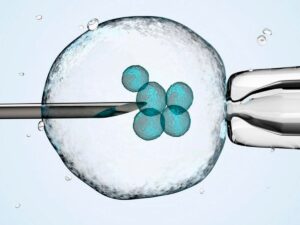In 2015, the UK became the global pioneer in approving legislation that permits mitochondrial donation in strictly controlled clinical settings. This decision marked the birth of the concept of ‘three-parent babies’. The procedure involves incorporating genetic material from a third person into the baby, while still maintaining the genetic integrity of the mother and father. This procedure is not seen as a gateway to ‘designer babies’ because it does not alter the nuclear DNA of the embryo. The ‘third parent’ only provides mitochondrial DNA, which essentially powers the cells but does not influence the baby’s inherited traits. Emily Jackson, a Professor of Law at the London School of Economics, shared these insights. She further discussed the ethical considerations and the scientific consensus that embryo gene editing is not yet safe enough for use in humans.











